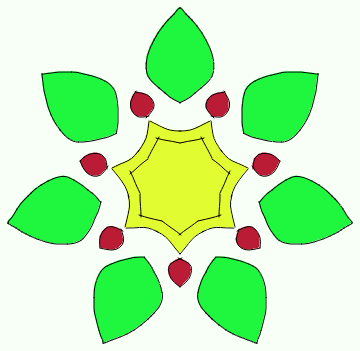Vachmi
How Upasarga Changes Meaning of Sanskrit Verb Roots?

There is a group of twenty two particles in Sanskrit called प्रादि गण (prādi gana).
It is called so as the first member of the group is प्र (pra).
When a particle in the प्रादि गण is used along with a धातु, it is called उपसर्ग (Upasarga).
They are alternatively also known as preverb, preposition, verb prefix.
An उपसर्ग may change the meaning, may not change the meaning, or may enhance the meaning of a धातु to which it is added.
When a particle in the प्रादि गण is used along with a धातु, it is called उपसर्ग (Upasarga).
They are alternatively also known as preverb, preposition, verb prefix.
An उपसर्ग may change the meaning, may not change the meaning, or may enhance the meaning of a धातु to which it is added.
In this article, we will look at some interesting examples of how an उपसर्ग (Upasarga) changes meaning of a धातु.
Let us start with धातु भू (1P) which means 'to be'. However, when an उपसर्ग (Upasarga) is added to it, its meaning changes as follows
Let us start with धातु भू (1P) which means 'to be'. However, when an उपसर्ग (Upasarga) is added to it, its meaning changes as follows
- अनु + भू = अनुभवति
bhavati → anubhavati
He/She is/becomes → He/She experiences - अभि + भू = अभिभवति
bhavati → abhibhavati
He/She is/becomes → He/She gets overwhelmed - प्र + भू = प्रभवति
bhavati → prabhavati
He/She is/becomes → He/She appears - सम् + भू = संभवति
bhavati → sambhavati
It is/becomes → It becomes possible